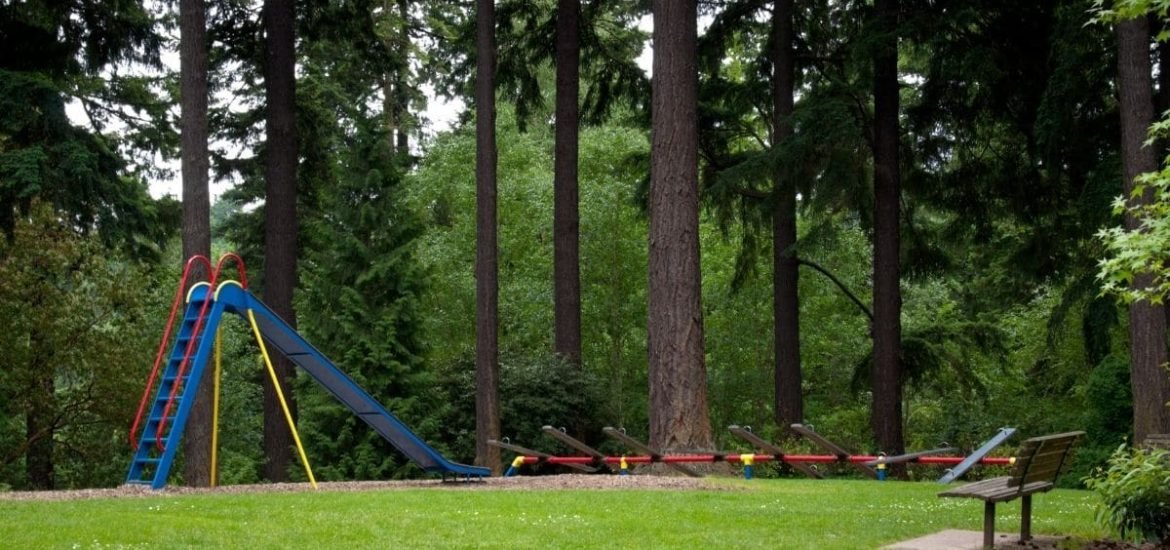
Children who played in newly forested spaces for one month had more diverse communities of friendly bacteria than those who played in standard playgrounds with pavement and gravel, according to a new study published on 14 October in Science Advances (1). Exposure to microbes found on the forest floor is good for young immune systems, it seems.
Scientists have long suspected that increased hygiene, urban lifestyles, and insufficient contact with nature have played a role in the rise of chronic disorders such as asthma, diabetes, and allergies – which are all related to an overreactive immune system.
In urban areas, many people increasingly miss out on exposure to a variety of harmless bugs. This lack of microbes in paved-over environments could be influencing the human immune system, making people more likely to develop immune-mediated diseases. Indeed, previous human epidemiological studies provide some evidence that allergy and asthma rates tend to be higher in more industrialized areas compared to rural ones.
The idea that an environment rich in microbes can impact our immunity is known as the ‘biodiversity hypothesis’. Less exposure to bacteria, protozoa, fungi, and viruses as a child can make our immune systems poorly equipped to combat future invaders.
In the first randomized controlled trial to test the biodiversity hypothesis in children, the researchers replaced the asphalt, gravel, and sand under the swings and jungle gyms of daycare centres in the Finnish cities of Lahti and Tampere with small patches of ‘forest floor’ harvested from wooded areas less developed parts of the country. Lawn turf and planter boxes were also installed and the children were encouraged to plant and tend crops.
A total of 75 children between the ages of 3 to 5 who were attending one of seven daycares – four of them augmented with the diverse microbial environments and three as negative controls – were recruited. To remove as many variables as possible, each child had similar numbers of siblings and pets, spent the same amount of time outdoors, and ate similar fruits and vegetables.
After just four weeks, increased microbial diversity was observed in the skin of children who played on the ‘forest floor’ playground. The researchers found increases in gammaproteobacteria, which strengthen the skin’s immune defence, multifunctional TGF-β1-cytokine, and reduced interleukin-17A, which is connected to immune-transmitted diseases, in the blood.
“This supports the assumption that contact with nature prevents disorders in the immune system, such as autoimmune diseases and allergies”, explained Dr Aki Sinkkonen, a researcher at the Natural Resources Institute Finland, who led the study.
Lead author Marja Roslund, a researcher at the University of Helsinki added: “We also found that the intestinal microbiota of children who received greenery was similar to the intestinal microbiota of children visiting the forest every day”.
It certainly seems undeniable that contact with nature – even a transplanted forest floor – promotes the natural development of immune systems through exposure to a broad range of microbes involved in different aspects of the immune response.
“The results of this study are encouraging when looking for new opportunities for the prevention of immune system disorders”, said Prof Heikki Hyöty, a virologist at the University of Tampere, who was involved in the study. “Further studies aimed to reach this goal are already underway”.
Prof Juho Rajaniemi, a professor of Urban Planning at the University of Tampere who was also involved in the study suggests: “As many functional green environments as possible should absolutely be planned in towns and cities”. These enjoyable environments that improve wellbeing can be built for relatively little cost.
“We should modify our daily life so that we can be in contact with nature. It would be best if children could play in puddles and everyone could dig organic soil. We could take our children out to nature five times a week to have an impact on microbes”, encourages Sinkkonen.
(1) Roslund, M.I. et al. Biodiversity intervention enhances immune regulation and health-associated commensal microbiota among daycare children. Science Advances (2020). DOI: 10.1126/sciadv.aba2578